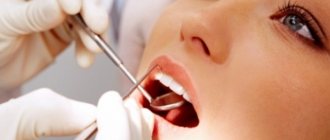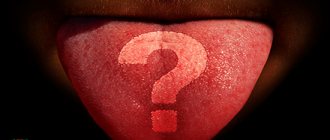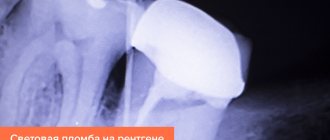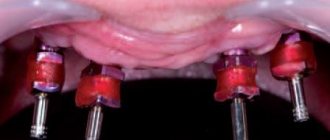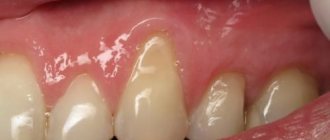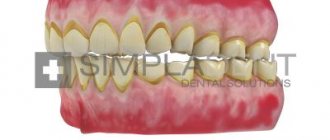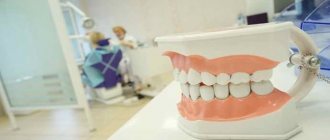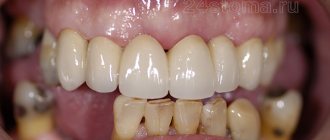Dentistry Apex-D / Dental implants / CSM implants
CSM implants is a South Korean brand that produces all components for implantation systems using high-tech Japanese equipment. CSM Implant is a reliable fixation, quick healing and relief from dental problems for a long time. CSM implants meet all quality standards and therefore have been used for an impressive period of time in dental clinics not only in Asia, but also in Europe. These South Korean implants are appreciated by both doctors and patients.
Features of the production of implants CSM Implant
Production has been concentrated in South Korea since 2000. It took the company less than ten years to establish itself from the best side. Many dental clinics in different countries work with CSM implants. Dentists undergo training and practice in South Korea.
Production is carried out on modern high-tech Japanese equipment. CSM Implants are made from titanium alloy of the fourth category. Implant surgeons take part in the development and production of products.
Dental implant model CSM Implant
The results of research and independent examinations confirm that CSM Implant implants do not have a toxic effect on bone cells and are safe for patients.
Briefly about the manufacturer
CSM implants are designed and created by specialists from the company of the same name from South Korea. The concern was created in 2000. Its main activity is the production of dental implants.
The success of the company is ensured by the participation of experienced scientists and the use of advanced Japanese-made equipment.
Thanks to this, in just a few years the concern gained worldwide fame and recognition in Europe and Asia.
The company fruitfully cooperates with clinics of the Russian Federation. Our specialists undergo theoretical and practical training at the company's head office.
Certification of the CSM Apolonia implant system
The products have a European certificate of conformity ISO 9001, ISO 13485 and CE certificate. This indicates compliance with international requirements within the standardization system.
Dental structures are subjected to laser processing patented by the company. Due to this, complete osseointegration with the bone structures of the jaw is ensured in 4-7 weeks . Implants form a dense single layer with adjacent surfaces, which guarantees reliable use throughout the entire service life.
Advantages and disadvantages of systems
Universal system - can be combined with absolutely any implant structures
. Main positive properties:
- with high quality, implants have a relatively low cost;
- The warranty period is at least 15 years ;
- versatility allows you to combine them with any other systems;
- accelerated engraftment;
- installation is possible with reduced bone density or thickness.
There are no disadvantages to specific implants, except for the general ones characteristic of the implantation procedure:
- a large number of contraindications for installation;
- risk of rejection (for CSM Implant systems it is very small);
- financial cost of complete implantation and its individual components.
Advantages
The CSM Implant company was able to create unique designs of high-quality implants with undeniable advantages over analogues of other world brands.
The advantages of CSM systems include:
- Material. Titanium alloy is used for the manufacture of structures. It has the fourth quality category and is considered the best type of alloy;
- The treatment is carried out using laser technology, which is patented by CSM Implant. Laser equipment allows you to create an ideal surface that ensures osseointegration of the implant within 1-2 months;
- Versatility. The system can be combined with any other designs, thanks to a wide range of products. The line consists of 16 models, which allows you not only to choose a design for reliable fastening, but also for ideal immersion;
- One of the most important advantages is the affordable price. High quality of products combined with low cost ensures competitiveness with products of world brands;
- Guarantee. The manufacturer is ready to provide a 15-year warranty on its products, subject to compliance with all requirements and installation protocol.
How the Korean Osstem implants are designed and the system components. Come here if you are interested in the features of Nobel Biocare implants.
At this address https://dentist-pro.ru/implantaciya/proizvoditeli/astra-tech/obzor-zubnyx.html we offer a detailed description of Astra Tech implants.
Indications and contraindications for implantation
Implantation using CSM Implant products is indicated for:
- complete edentia;
- loss of one or more teeth;
- anatomical or structural defects of the dentition;
- hypersensitivity to removable denture materials (plastic, metal, nylon).
Installation of implants is not recommended for:
- diseases of the immune system;
- tuberculosis;
- diabetes;
- bruxism;
- poor blood clotting;
- diseases of the nervous system of a chronic or acute nature;
- malignant tumors;
- diseases of the oral mucosa.
Contraindications
Recommendations regarding who does not need to have implants are divided into two types - relative and absolute.
Relative ones include:
- any stage of pregnancy;
- presence of bite defects;
- lack of oral hygiene;
- the presence of a carious cavity;
- inflammation of the mucous membrane;
- presence of bruxism;
- the presence of pathologies associated with the temporomandibular joint;
- cachexia.
The absolute ones include:
- the presence of a tumor, regardless of location;
- high tone of masticatory muscles;
- impaired blood clotting process;
- the presence of pathologies of the nervous system;
- mental illness;
- failure to reach the recommended age;
- any type of diabetes;
- immunodeficiency, tuberculosis, osteoporosis, rheumatism;
- presence of stomatitis;
- chronic pathologies of internal organs;
- allergy to anesthesia.
Problems solved with the help of Ards implants and description of catalog models. In this publication, we will calculate together the cost of installing Cortex implants.
Here https://dr-zubov.ru/implantaciya/proizvoditeli/impro/nemeckoe-kachestvo-2.html we will look at the models of the Impro implant catalog.
How CSM implants are placed
The sequence of actions of the implantologist will be as follows:
- An antiseptic will disinfect the work area.
- Will administer local anesthesia.
- After making an incision, the gum fragment will be separated from the periosteal zone.
- Using a depth gauge, an implantation bed of the required size will be formed in the bone.
- The implant and fixation plug will be installed.
- He will put stitches.
The procedure takes about 1 hour. After the implant has been implanted in the jawbone, in 3-4 months it will be possible to begin the prosthetic stage - installing a crown or prosthesis.
Service life and warranty
The lifespan of dental implants can be significantly reduced by:
- smoking;
- bone diseases;
- lack of professionalism of the doctor and possible errors during installation;
- neglect of oral hygiene.
Unless rejection occurs, CSM systems will last a lifetime with proper care. The company provides a guarantee for implants for at least 15 years.
If rejection occurs in the first 5 years after installation, the design is replaced with a new one free of charge.
Installation protocol
The operation includes several stages, the timing of which is only approximate. This is explained by the fact that they are determined individually.
Preparation
The doctor, a few weeks before the operation, prescribes the following diagnostics to the patient:
- examination and sanitation of the oral cavity;
- lab tests;
- consultation with a neurologist, allergist, cardiologist, endocrinologist, ENT specialist (when installation is planned on the top row);
All this is just the bare minimum.
Analyzes
This stage involves donating blood. Usually this is a general analysis with some additions. For example:
- Diagnostics of blood coagulation.
- Degree of glucose content.
- Biochemical analysis.
- Test for the presence of HIV and hepatitis.
- Test for syphilis (anticardiolipin).
If the patient has a history of chronic diseases, then additional studies are prescribed.
Research
The structure of the jaw also plays an important role. The following methods are necessary for its complete study:
- X-ray. Necessary when a specific area of the jaw is needed. Thanks to it, tissue monitoring is also carried out.
- Orthopantomogram. Used to obtain detailed information about the quality of the bone being examined.
- CT scan, in which the doctor takes a three-dimensional picture of the bone. This allows you to analyze the structure and density of hard tissues.
Carrying out implantation without research is impossible. Ignoring does not guarantee a favorable outcome of the operation.
Tissue extension
If there is insufficient bone tissue, the doctor may recommend:
- regeneration , which will allow you to increase the volume with artificial material;
- using a bone block , which involves resorption of the bone and transplantation of tissue to the problem area from another location;
- sinus lift involves increasing volume by shifting the mucous membrane.
However, even if the desired amount of tissue is achieved, it is necessary to wait 5 to 6 months after additional surgery.
Operation
When the preparation is successfully completed, the operation begins. It lasts about 90-100 minutes.
This time is the standard, but may change depending on the diagnostic results, the chosen technique and the physiological structure of the jaw.
The surgical process itself is a product of:
- flap incision of soft gum tissue;
- peeling of the gum to expose the periosteal tissue;
- make marks on the exposed fragment and begin to drill a bed of the required length;
- the hole is expanded in accordance with the dimensions of the installed system.
Afterwards, a thread is made into which the intraosseous part of the implant is screwed in and closed with a plug. The detached flap of gum is placed on the implant, secured with sutures.
In the video, watch the installation process of the CSM system.
Recovery
After the operation, the engraftment stage begins. It lasts a long time, and the first week is usually characterized by swelling and pain.
As for recommendations, doctors advise not to put yourself in situations of increased stress and avoid playing sports.
Care consists of applying antiseptic drugs and regular consultations.
Gum formation
After surgery, it is important to ensure a natural gingival contour. This is achieved by replacing the screw plug with a screw cylinder. It can only be used after six months.
Prosthetics
After complete healing, you need to install a crown. To do this, impressions are taken from the jaw.
It is important that the new crown does not disturb the bite and allows the body to rehabilitate the chewing function.
The prosthesis is made of adhesive material and fixed to the abutment (an intermediate part that connects the intraosseous part of the structure and the crown).
Rehabilitation
The duration of the rehabilitation period is individual. However, to a greater extent, the recovery period depends on the patient’s health condition and the chosen technique.
The general recommendations are:
- thorough cleaning of the oral cavity;
- use of aseptic agents;
- regular doctor consultations;
- reduction of solid foods in the diet.
If everything is done correctly, without ignoring the doctor’s requirements, then rehabilitation can be completed in six months or a year, maximum.
Comparison with other popular brands
Nobel Biocare implants from Switzerland
The main advantages of the Nobel system:
- each rod has a serial number, which eliminates the possibility of counterfeiting;
- does not require additional bone augmentation in case of bone deficiency;
- The company's patented TiUnite material promotes bone tissue restoration.
Turnkey installation with a metal-ceramic crown costs from 65,000 rubles, with a zirconium crown - from 80,000 rubles.
Israeli AlphaBio system
Advantages:
- minimum contraindications for installation;
- indicated for one- and two-stage implantation;
- aesthetics.
AlphaBio turnkey installation with crown:
- metal-ceramic - from 39,000 rubles;
- zirconium - from 53,000 rub.
Swiss Straumann designs
Features of Straumann:
- increased stability due to the porous surface of the implant;
- the ability to carry out prosthetics one month after implantation.
Turnkey implantation with a metal-ceramic crown costs from RUB 77,000; made of zirconium - from 90,000 rubles.
Implant structures of other brands
Dental implants Osstem (South Korea)
Advantages:
- coating that reduces the period of osseointegration by 20%;
- increased primary stability;
- minimal risk of rejection.
The price for a turnkey Osstem installation with a metal-ceramic crown is from 43,000 rubles, and from zirconium – from 65,000 rubles.
South Korean Superline products
Superline systems are characterized by:
- lack of rehabilitation period;
- combination with the abutment in one design;
- maintaining the usual load on the jaw.
Price for turnkey installation with crown:
- metal-ceramic - from 53,000 rubles;
- zirconium - from 60,000 rubles.
Dental implants from Germany XIVE
Advantages of Xive designs:
- the internal hexagonal connection of the implant with the abutment eliminates minimal gaps and the development of infection due to the ingress of food debris;
- no age restrictions;
- quick and painless installation using branded surgical instruments;
- high percentage and short survival period.
Cost of turnkey installation with crown:
- metal-ceramic - from 50,000 rubles;
- zirconium - from 60,000 rubles.
Types of systems
The structures are designed so that they can be installed using four main methods. They are:
- Mini-implantation. The system serves to support removable dentures, and not full implantation due to the inability to withstand heavy loads. Product size (narrow): from 2.7 to 3.75 mm in diameter and from 8 to 13 mm in length.
- Basal implantation. The system is used for immediate loading, which does not require bone tissue augmentation. Single-component products are used, the size of which is (average): from 3.55 to 4.2 mm in diameter and from 8 to 13 mm in length.
- Two-stage. Involves tooth extraction and bone tissue rehabilitation. Only then does surgery follow. Product size (standard): from 3.1 to 3.85 mm in diameter and from 8 to 13 mm in length
- One-stage. It only involves tooth extraction, which requires a larger implant. Product size (wide): from 4.2 to 5 mm in diameter and from 8 to 13 mm in length.
Thus, each technique has a relationship with a specific type of implantation system and the method of its installation.
